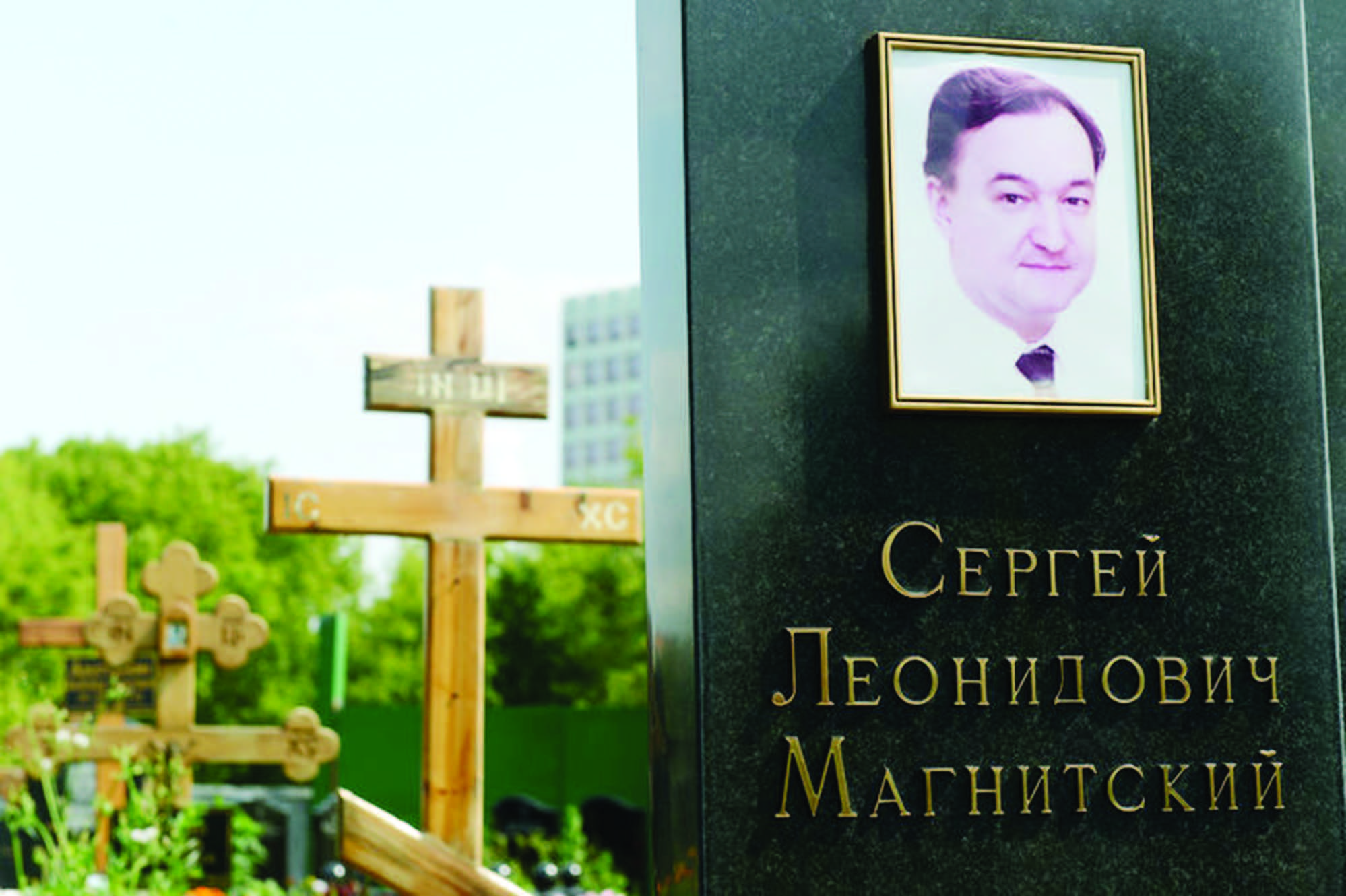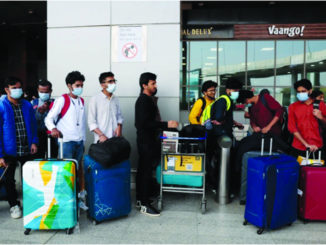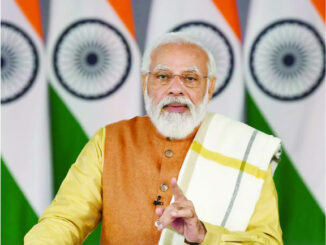
VILNIUS, LITHUANIA (TIP): Facing trial in Russia over the theft of a street-art drawing valued by its creator at $1.55, Nikita Kulachenkov, a Russian forensic accountant involved in anticorruption work, fled to Lithuania to avoid what he decided was a doomed battle against trumped-up charges.
What he did not realize was that Russia’s reach these days extends far beyond its borders. Arriving in Cyprus from Lithuania in January to join his mother for a holiday, Kulachenkov was stopped at airport passport control, questioned for hours by immigration officials and then taken in handcuffs to a police detention center.
“They told me there was a problem with Russia and kept asking me what crime I had committed,” Kulachenkov recalled. Cypriot immigration and police officers seemed as mystified as he was, he said, by a note in their computer systems that described him as a wanted criminal requiring immediate arrest.
The wanted notice had been put there in August last year by Russia, where the theft of millions and even billions of dollars by the politically connected goes mostly unpunished but where the alleged theft of a street sweeper’s all-but-worthless drawing has been the focus of a lengthy investigation involving some of the country’s most senior law enforcement officials.
The arrest demand, known as a “diffusion,” had gone out to Cyprus and 50 other countries through the international police organization, Interpol. It had not been endorsed by Interpol, which is “strictly forbidden” by its Constitution from any action of a “political character,” but nonetheless labeled the 34-year-old anticorruption activist as a criminal in databases around the world.
Determined to punish domestic opponents who flee abroad, as well as non-Russians whose lives and finances it wants to disrupt, Moscow has developed an elaborate and well-funded strategy in recent years of using —critics say abusing — foreign courts and law enforcement systems to go after its enemies.
Some countries, including Russia, “work really hard to get Interpol alerts” against political enemies, said Jago Russell, the chief executive of Fair Trials International, a human rights group in London, because “this helps give credibility to their own prosecution and undermines the reputation of the accused.”
“It is also potentially a good threat to use against people still in the country: ‘You may be able to leave, but don’t assume you will be safe,'” he added.
The efforts have often fallen flat in the end, but have succeeded in tying up their targets in legal knots for months and years.
Acting on a Russian request, a British court, for example, froze the worldwide assets of Sergei Pugachev, a former close friend of President Vladimir Putin’s who fell out with the Kremlin in a squabble over property and fled to Britain, then France.
Russia has also used British courts and Interpol to pursue what many Western governments view as a vendetta against William F. Browder, an American-born British citizen. Browder was convicted in absentia in Russia of tax fraud after he fled to London and mounted an international campaign against Russia over the killing of his jailed Moscow lawyer, Sergei Magnitsky.
Browder defeated a libel case in 2013 brought in London by a Moscow police officer whom the financier had accused of involvement in a fraud uncovered by Magnitsky. But he faces a new fight as Russia seeks to get British courts to find and freeze his assets and enforce a civil judgment against him in Russia.
The only winners in most such cases are expensive lawyers, for whom pursuing Russia’s foes in foreign courts has become a highly lucrative business.
Russia pushed three times between 2012 and 2015 to get Interpol to issue arrest orders against Browder. Having failed each time to convince the police organization that it did not have political motives, it announced this summer that it would try yet again.
“The Russians try stuff a hundred times, and sometimes it works,” Browder said. “They can fail 99 times, but the 100th time it could work. For them, that makes it all worthwhile.” He described the practice as “lawfare.”
Based in Lyon, France, and comprising 190 countries, Interpol defines its role as enabling “police around the world to work together to make the world a safer place.” It has often done this, allowing police forces to share information about the whereabouts of mafia bosses, murderers and other criminals, and to secure their arrest.
But the Interpol membership of nations —like Russia, Iran and Zimbabwe — that routinely use their justice systems to persecute political foes has stirred worries that wanted notices can be easily misused. In September, the congressional Tom Lantos Human Rights Commission heard a litany of complaints about abuse from experts and victims of Interpol notices during a discussion of how to reform the police organization’s system of so-called red notices.
Interpol issues such notices, which amount to an international arrest warrant, at the request of a member country seeking help in catching a fugitive who has fled abroad. Interpol’s computer system also circulates diffusions like the one against Kulachenkov. These are less formal than red notices, but are also used to request the arrest or location of an individual, or information, in relation to a police investigation.
Interpol does not release figures for how many red notices or other arrest alerts are issued through its computer system by each member country, but the number of people identified in Interpol’s databases as wanted criminal suspects has risen sharply in recent years.
In 2004, Interpol issued just 1,924 red notices at the request of member countries. Last year, it issued 11,492, as well as 22,753 diffusions.
As a result of one of those, Kulachenkov spent nearly three weeks in a Cypriot jail while the authorities in Cyprus reviewed a request from Moscow that he be sent to Russia to stand trial in a case that even Russia’s prosecutor general had initially ruled was not worth pursuing.
The drawing he is accused of stealing was done by Sergei Sotov, a street sweeper and artist who had left it and other examples of his work hanging on railings around Vladimir, a city east of Moscow. The street sweeper made no complaint to the police when the drawing disappeared, and said he was glad that someone liked his work. (NYT service)





Be the first to comment